
e-HAIL Symposium Offers Chances for Interdisciplinary Collaboration, Shows Benefits of Joint Research Projects
The inaugural annual e-HAIL symposium took place on September 16 to celebrate the launch of e-HAIL in 2021 and its early successes, and to build on these to offer new chances for faculty researchers from different departments to meet and collaborate. The symposium was attended by more than 90 people, split evenly between the Medical School, the College of Engineering, and a combination of other Schools and Colleges (including the Schools of Dentistry, Information, Nursing, and Public Health, and the College of Literature, Science, and Arts).
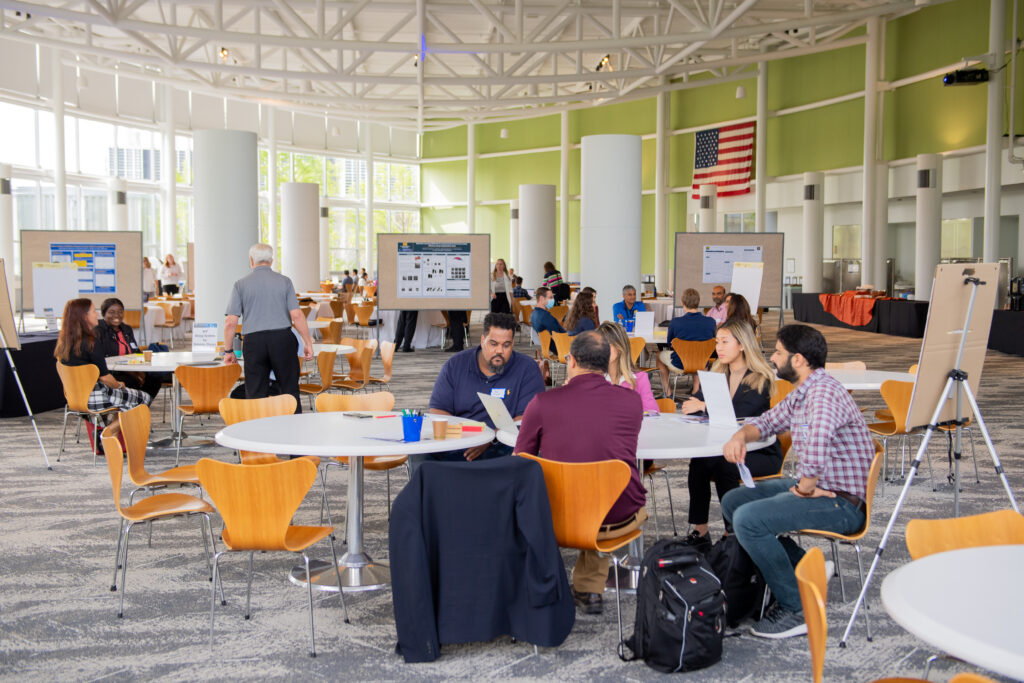
The event started with opening remarks from e-HAIL co-lead convener Dr. Akbar Waljee, who spoke about the goal of e-HAIL to enhance interdisciplinary collaboration between U-M’s Medicinal School and the College of Engineering to innovate in methodological approaches to transform data into knowledge for health.
Exemplifying the potential for new discoveries at the intersection of AI and health, Dr. Geoffrey Siwo, a research assistant professor in the Department of Internal Medicine, delivered a keynote presentation “When AI Meets Fundamental Biology.” Starting from the limitations of data in and of themselves, his talk outlined a broad evolution of technology and the application of AI to health-related fields. He discussed three main ideas on how AI models can be improved, by bringing domain knowledge into models, using generative models, and by using insights from biology.
Following a coffee and networking break, e-HAIL co-lead convener Dr. Rada Mihalcea introduced the six unconference sessions. The sessions, organized as informal breakout groups, were proposed by e-HAIL members as part of the organization of the event, to underline the researcher-driven approach to interdisciplinary collaboration proposed by e-HAIL. Sessions on such topics as natural language processing dialogue systems for behavior change, integrating prediction and constrained decision approaches for healthcare, and the use of robots in healthcare, offered attendees the chance to coordinate with others interested in the same topic and learn about new or ongoing research projects.
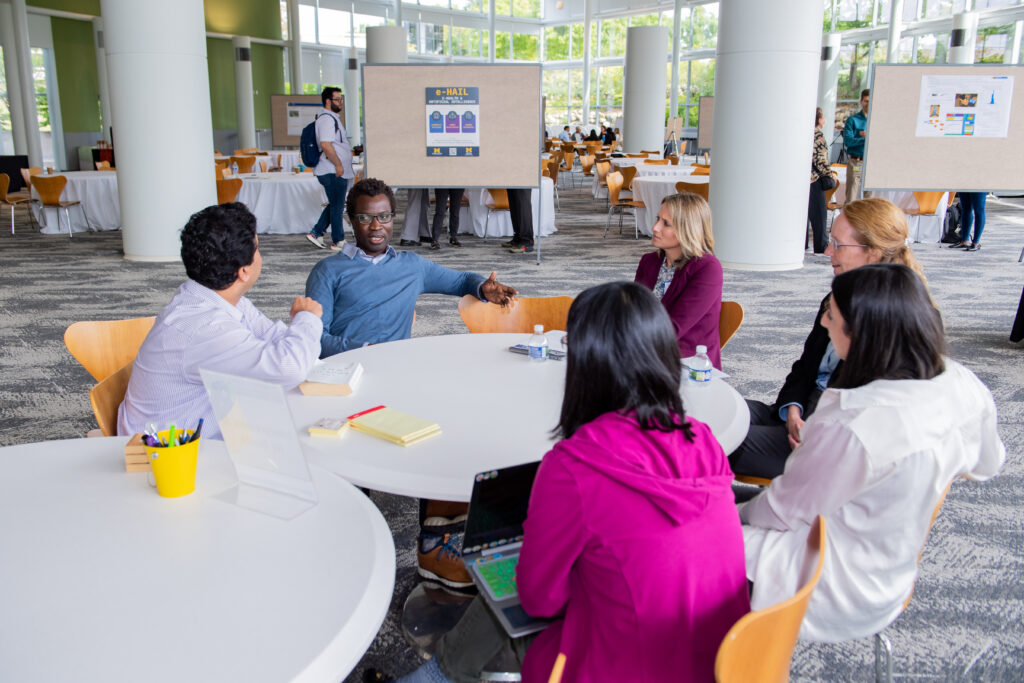
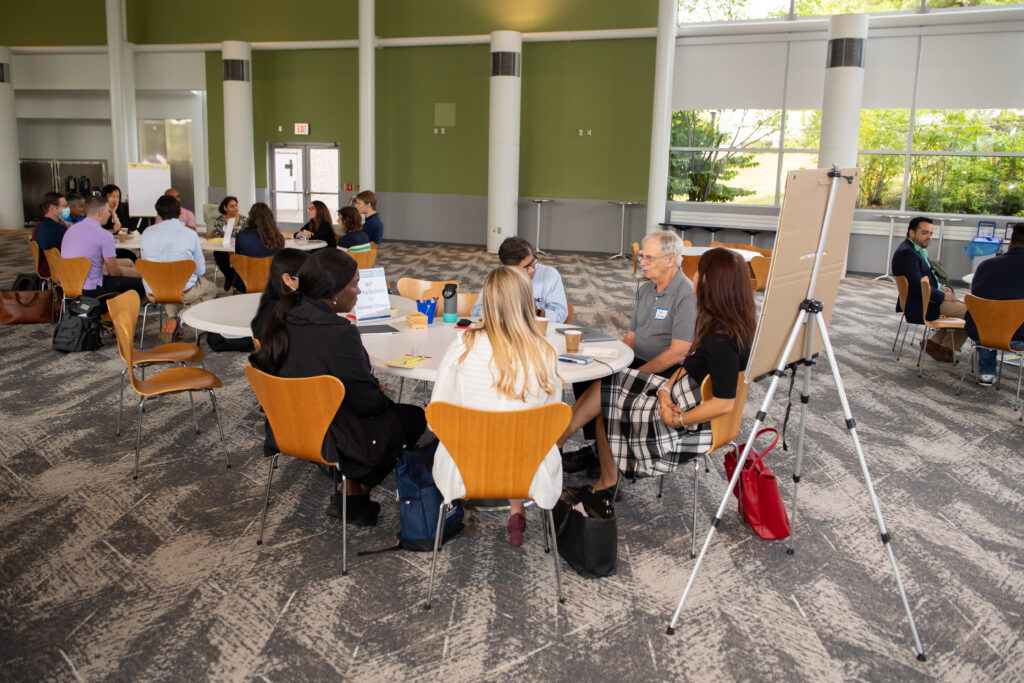
The poster session during lunch featured projects funded through the e-HAIL student summer research support program, which allows new pairs of collaborators from Michigan Medicine and the U-M College of Engineering to hire a student to work on preliminary data collection towards a grant application. Student presenters described the ongoing research, intended goals, challenges, and opportunities for projects ranging from Using Eye-Gaze Data to Augment Surgical Dyads’ Intraoperative and Postoperative Coordination and Instruction to Estimating bounds on causal effects under differential measurement error, and AI/ML methodologies to predict chronic hepatitis B (CHB) disease progression in Africa.
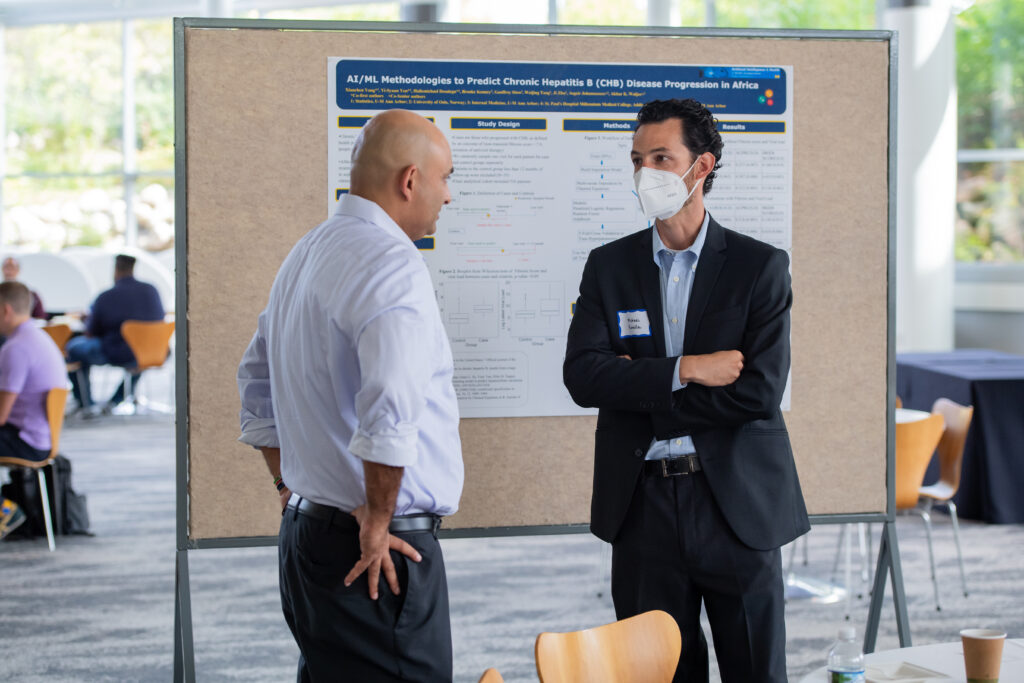
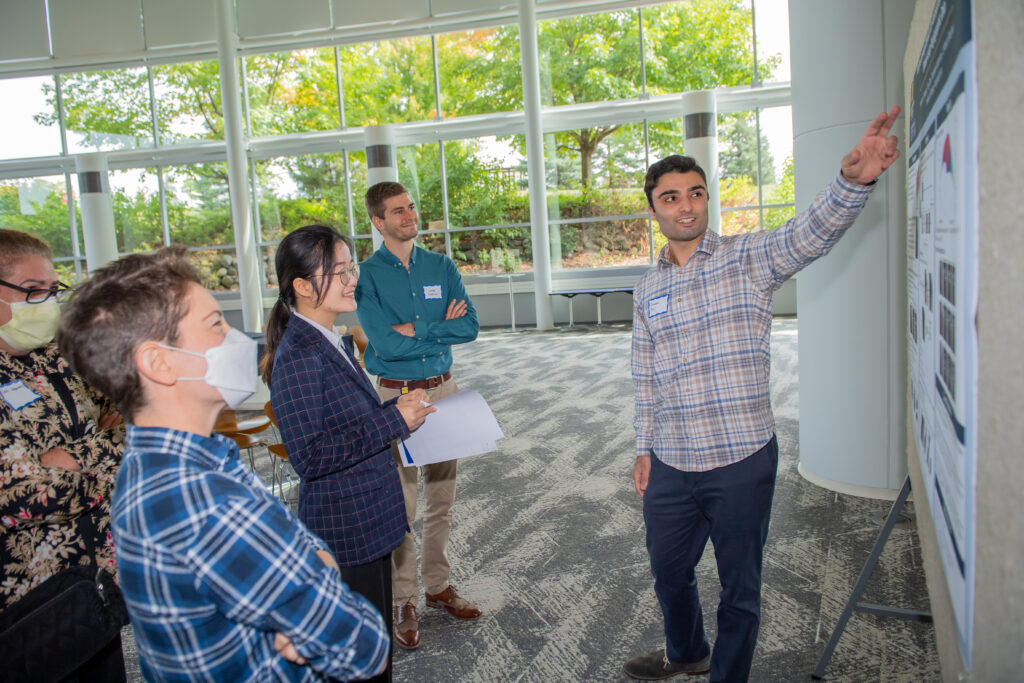
After lunch, attendees broke off into two parallel sessions discussing the “knots and bolts” of successful interdisciplinary collaborations and grant applications. Waljee and Mihalcea along with e-HAIL member Dr. Maggie Makar and graduate student Erkin Otles facilitated a conversation with tips for building successful AI-health collaborations. e-HAIL advisory conveners Drs. Brahmajee Nallamothu and Jenna Weins and e-HAIL member Dr. Mike Sjoding led the second discussion on the differences to be aware of in writing NSF and NIH grant applications. Both sessions started with brief opening remarks by the presenters before allowing attendees to ask questions.
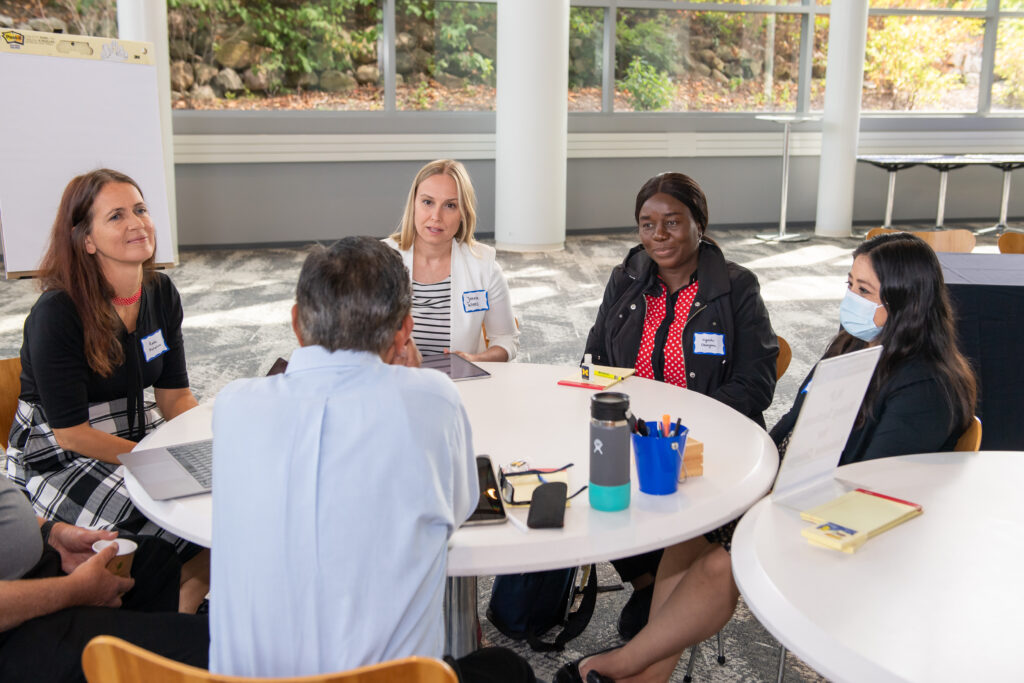
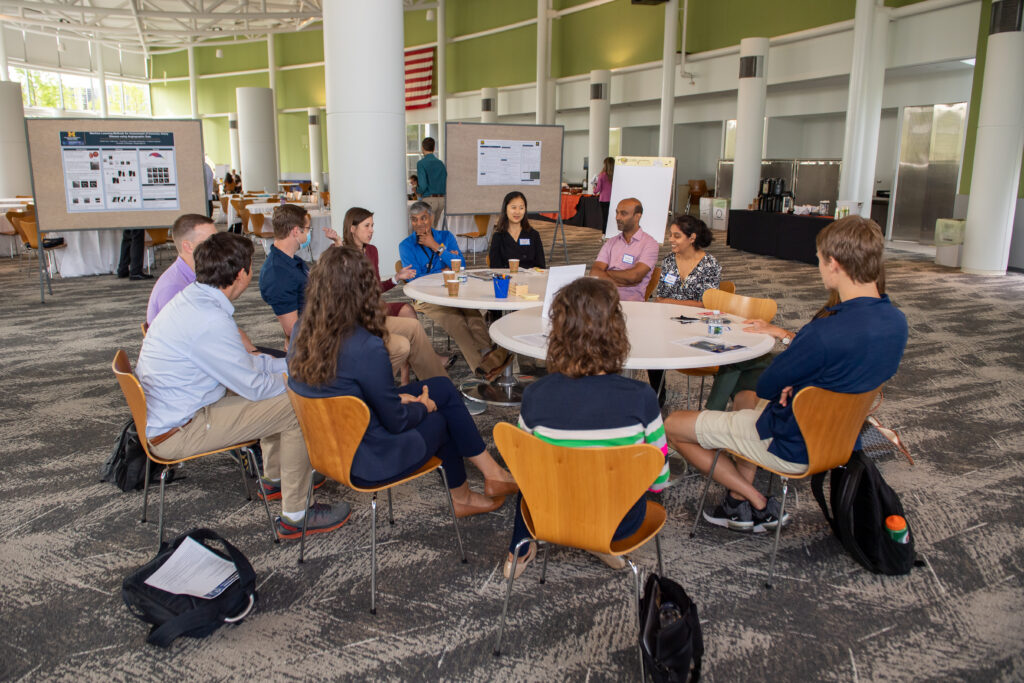
Dr. Wiens then introduced the final session — a keynote presentation, “Registering Medical Images Using Networks and Hypernetworks,” by distinguished MIT professor Dr. John Guttag. His talk focused on his own interdisciplinary research to use machine learning to align medical images to allow for better analysis and diagnosis, first by developing the method VoxelMorph and then, improving on that, HyperMorph. His research illustrates how AI and machine learning can tackle medical challenges and yield massive benefits.
A prominent theme throughout the symposium was how faculty from different schools and fields can find common interests and build relations with each other to develop interdisciplinary work that addresses major research challenges that can only be solved by combining methodological innovation and specialized domain expertise. The symposium offered attendees an opportunity to find peers and potential collaborators. In the coming year, e-HAIL will continue its mission to support newly established collaborations and help position them to attract external funding for their innovative projects.
Keynote Speakers & Presentations
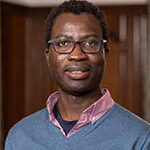
Geoffrey Siwo, Ph.D. Research Assistant Professor, Department of Internal Medicine, Michigan Medicine
Presentation: “When AI Meets Fundamental Biology”

John Guttag, Ph.D., Dugald C. Jackson Professor of Computer Science and Electrical Engineering, MIT
Presentation: “Registering Medical Images Using Networks and Hypernetworks”

 MENU
MENU 
